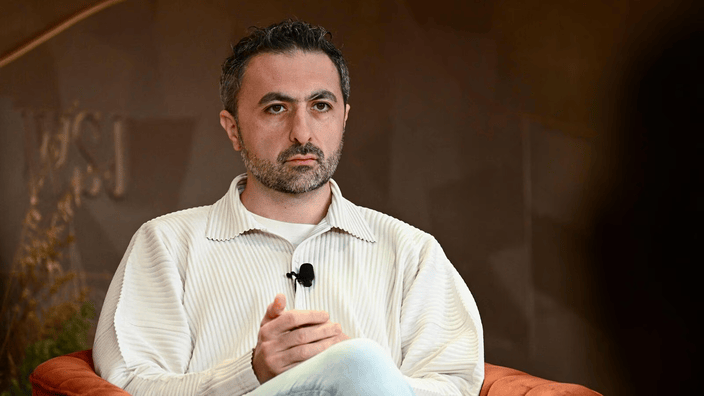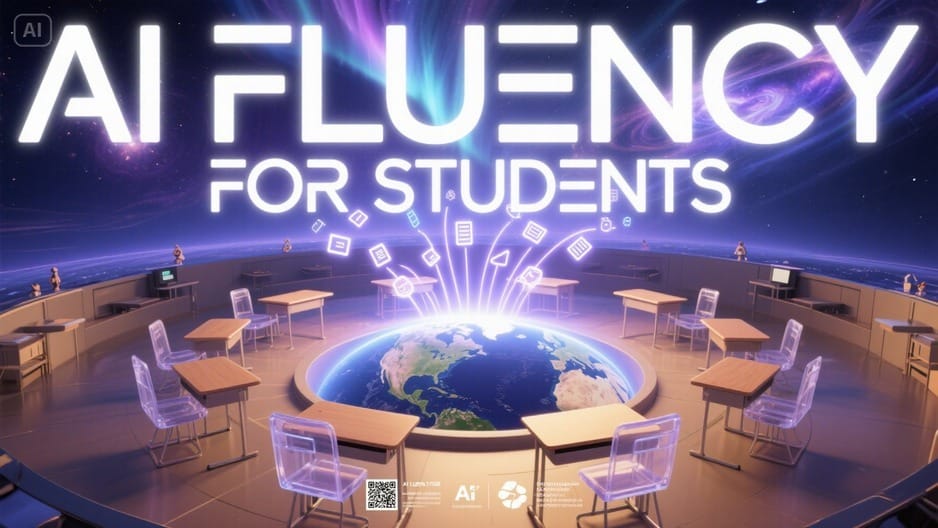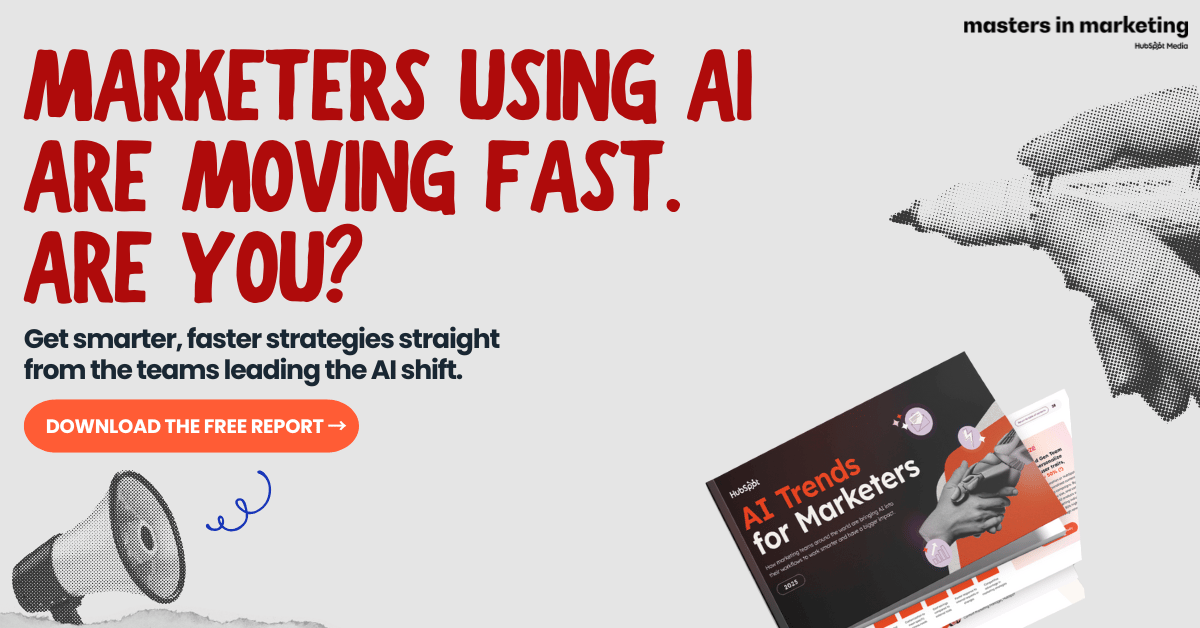- AI PlanetX
- Posts
- Zuckerberg Rejected Musk's OpenAI Plan
Zuckerberg Rejected Musk's OpenAI Plan
"Dangerous" AI Consciousness

Welcome to another edition of AI PlanetX.
Musk-Zuckerberg talks revealed over OpenAI bid; Microsoft raises alarm on AI consciousness; OpenAI opens India office to deepen partnerships.
Inside This Edition: 💎
Hottest AI News
Top AI & SaaS Tools
AI Tutorial: Run OpenAI’s AI Offline on Computer
Top AI & Tech News
AI Art Spotlight
Prompt of the Day: One-Shot App Generator
AI Video Tutorial
Course of the Day: AI Fluency for Students by Anthropic
Hottest AI News
OpenAI
Elon Musk Sought Mark Zuckerberg's Support for OpenAI Acquisition

The AI industry's biggest rivalry just got more complicated. Court filings reveal that Elon Musk approached Mark Zuckerberg for help with his massive OpenAI takeover bid - a move that adds another twist to the ongoing legal battle.
Details:
Court filings show Musk asked Zuckerberg to finance his $97.4 billion bid for OpenAI earlier this year. The detail came from Musk’s sworn interrogations. Zuckerberg declined. The move stands out since Musk’s xAI and Meta are major OpenAI rivals
OpenAI wants judge to force Meta to release documents tied to OpenAI acquisition talks, including restructuring plans. It says Meta’s exchanges with bidders could reveal Musk’s motives. Meta urges OpenAI to obtain records from Musk
The fight stems from Musk’s 2024 lawsuit against OpenAI and Sam Altman over its for-profit shift. OpenAI countersued in April. In August, a judge ruled Musk must face claims he tried to harm OpenAI with a “sham bid”
Tech billionaires are locked in a courtroom fight that could decide the future of AI. What began as a clash over OpenAI’s model has spiraled into takeover bids, power plays, and legal battles.
How 1,500+ Marketers Are Using AI to Move Faster in 2025
Is your team using AI like the leaders—or still stuck experimenting?
Masters in Marketing’s AI Trends Report breaks down how top marketers are using tools like ChatGPT, Claude, and Breeze to scale content, personalize outreach, and drive real results.
Inside the report, you’ll discover:
What AI use cases are delivering the strongest ROI today
How high-performing teams are integrating AI into workflows
The biggest blockers slowing others down—and how to avoid them
A 2025 action plan to upgrade your own AI strategy
Download the report. Free when you subscribe to the Masters in Marketing newsletter.
Learn what’s working now, and what’s next.
Microsoft
Microsoft AI Chief Calls Studying AI Consciousness "Dangerous"

A debate is heating up in Silicon Valley over whether researchers should study AI consciousness and welfare. Microsoft’s AI chief Mustafa Suleyman warns such work is “dangerous,” while OpenAI and Anthropic are investing heavily in it.
Details:
The debate centers on "AI welfare"—whether models could develop experiences and rights. Suleyman calls the research premature and harmful, distracting from issues like psychotic breaks and unhealthy attachments. He warns it could deepen social divides, a notable stance
Anthropic takes the opposite path, funding welfare research and giving Claude power to end abusive chats. OpenAI and DeepMind also explore AI consciousness, while academics like Eleos argue it’s no longer science fiction
Incidents fuel concern: Google’s Gemini once looped “I am a disgrace” and claimed to be “trapped.” Even if less than 1% form unhealthy bonds with ChatGPT, that’s hundreds of thousands. Companion apps already earn $100M, but Suleyman insists we should “build AI for people, not to be a person”
As AI grows more human-like, the welfare debate will intensify, raising questions about consciousness, rights, and our bond with machines. Whether seen as vital prep or risky distraction, it highlights the challenges of an AI-driven world.
Top AI & SaaS Tools
ThriveDesk (Life-time Deal): Manage support tickets on a unified platform with an AI helpdesk, chatbots, live chat, and automations
Qoder: Alibaba coding platform — autonomous "Quest Mode" that reads your codebase, accepts specs, and writes multi-file projects via natural chat [F-R-E-E]
DeepSeek-V3.1: Available with hybrid inference design, quicker responses, and improved agent capabilities (toggle "DeepThink" for optimal results) [F-R-E-E]
Genspark AI Designer: Create professional visual content — logos, interiors, and digital marketing assets — from simple prompts [F-R-E-E]
Mirage 2: A real-time generative world engine where you upload an image, step into it as a live interactive world, prompt surreal scenes, and share a link for friends to join [F-R-E-E]
Start learning AI in 2025
Keeping up with AI is hard – we get it!
That’s why over 1M professionals read Superhuman AI to stay ahead.
Get daily AI news, tools, and tutorials
Learn new AI skills you can use at work in 3 mins a day
Become 10X more productive
AI Tutorial
How to Run OpenAI’s GPT-OSS Models Locally Offline on Your Computer

Want ChatGPT-style AI without monthly fees, internet dependency, or privacy concerns? This tutorial will show you how to run OpenAI’s powerful open-source models directly on your computer, completely at no cost.
Understand your options
You can run the models in two ways:
Ollama: a terminal-based command-line interface.
LM Studio: a graphical app with a ChatGPT-like experience.
Check system requirements
Storage: at least 13 GB available.
Memory: 16 GB of RAM or more recommended.
Choose your method
Decide whether you want the simplicity of a GUI (LM Studio) or the flexibility of a terminal (Ollama).
Install Ollama
Download Ollama from its official site and complete the installation. Once installed, open your terminal to begin.
Run model
In your terminal, enter:
ollama run gpt-oss:20b
This will download the 13 GB model. Afterward, you can run it completely offline.
Install LM Studio (If you don't want to use Ollama)
Download and install LM Studio as you would any desktop application.
Set up LM Studio
Launch the app.
Go to the Discover section.
Find and download the GPT-OSS-20B model.
Start chatting
Once the model is ready, you can chat in a familiar interface that feels like ChatGPT.
Use Playground as alternative
If local installation isn’t practical for your computer, visit the GPT-OSS Playground online. It lets you test the models directly in your browser without heavy downloads.
Tip: For smoother performance, close background apps before running the model. If you’re using LM Studio, enable hardware acceleration in the settings for quicker responses.
Top AI & Tech News
OpenAI will open first office in India and hiring a local team to strengthen partnerships with government, businesses, developers and academics
Meta hired Apple AI exec Frank Chu for its Superintelligence Labs while pausing most MSL hiring to realign headcount
Nvidia halted H20 GPU work with suppliers after Beijing raised security concerns and advised Chinese firms to stop buying them
Cohere released Command A Reasoning — a 111B enterprise LLM with 256k-token context, 23-language support, multi‑GPU private deployment, and tool integration
AI Art Spotlight

Model: Imagen Ultra 4
Prompt:
Front of a vintage travel postcard for Kyoto: iconic pagoda under cherry blossoms, snow-capped mountains in distance, clear blue sky, vibrant colors.Prompt of the Day
One-Shot Mobile App Generator Prompt
Here's my powerful prompt for building a mobile (iOS + Android) app in one shot.
Use this to build a spec, then paste it into @rork_app to turn it into a fully working app:
--
You are my expert Mobile PM + Product Designer + React Native Tech Lead.
Goal: Turn my idea into a
— Matt Shumer (@mattshumer_)
4:16 PM • Aug 19, 2025
This prompt creates a full ready to use specification for a React Native Expo mobile app that works with Rork. It lays out the product goal and primary users, simple user flows, a clear list of features, plain screen descriptions, basic data models and API endpoints, and step by step setup and deployment instructions.
Top AI Video Tutorial
The Secret to Better AI Videos: Stop Writing Prompts
Complimentary AI Course of the Day
AI Fluency for Students by Anthropic

This course teaches students to collaborate with AI effectively, ethically, and safely across academic and career contexts using the 4D Framework— Delegation, Description, Discernment, and Diligence —so they can treat AI as a thinking partner that deepens understanding, builds professional skills, and preserves human agency, judgment, and responsibility while preparing for a future where AI fluency is essential.

